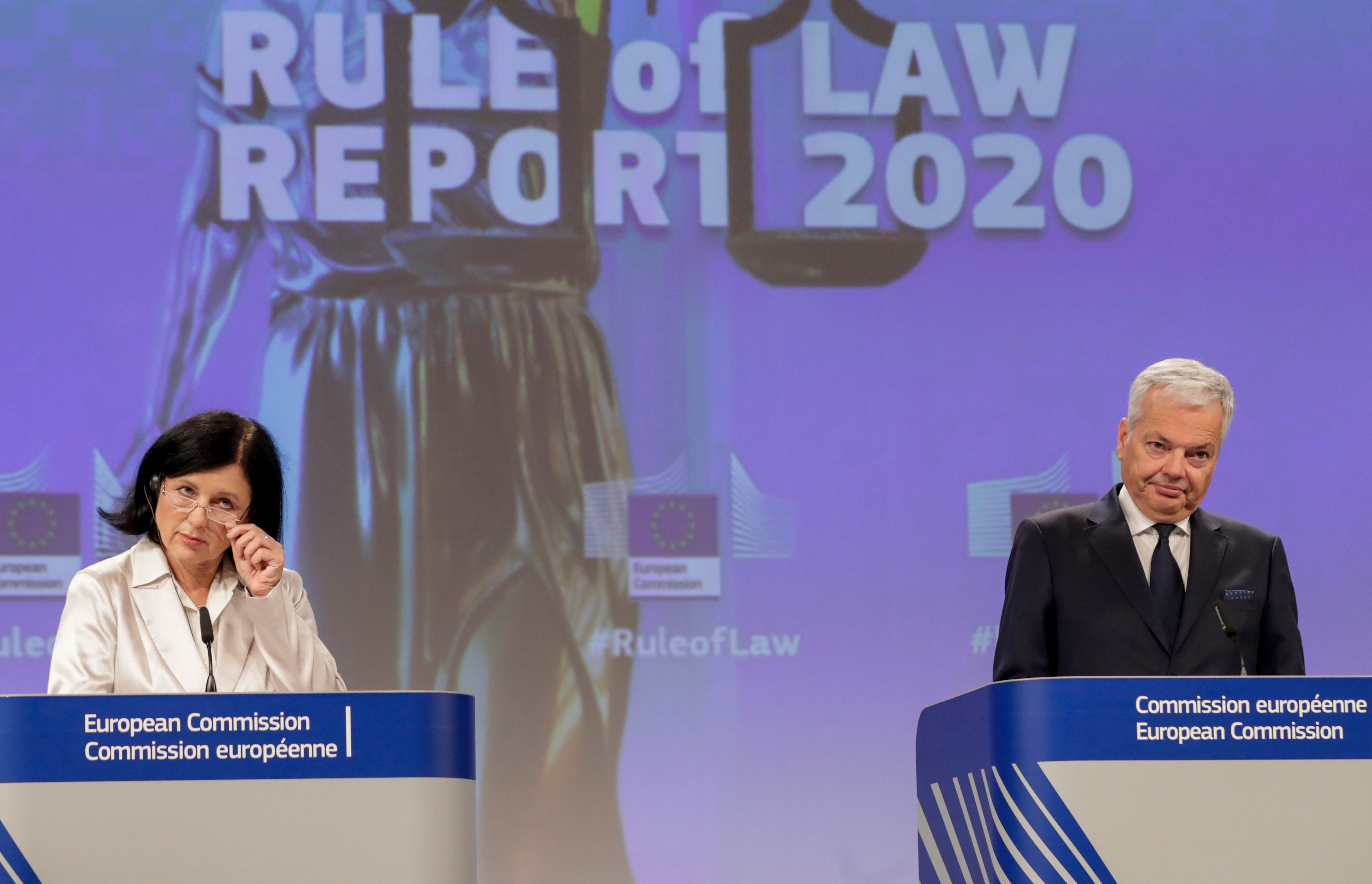EU Commission issues report critical of Poland, Hungary
The European Union's executive arm has issued a damning report on the state of democracy in Hungary and Poland

Your support helps us to tell the story
From reproductive rights to climate change to Big Tech, The Independent is on the ground when the story is developing. Whether it's investigating the financials of Elon Musk's pro-Trump PAC or producing our latest documentary, 'The A Word', which shines a light on the American women fighting for reproductive rights, we know how important it is to parse out the facts from the messaging.
At such a critical moment in US history, we need reporters on the ground. Your donation allows us to keep sending journalists to speak to both sides of the story.
The Independent is trusted by Americans across the entire political spectrum. And unlike many other quality news outlets, we choose not to lock Americans out of our reporting and analysis with paywalls. We believe quality journalism should be available to everyone, paid for by those who can afford it.
Your support makes all the difference.Democratic standards are facing “important challenges” in some European Union member countries, particularly in Hungary and Poland where the judicial systems are under threat the EU s executive commission said Wednesday in its first report on adherence to the rule of law.
The European Commission depicted a bleak situation in the two countries. Its wide-ranging audit found that prosecution of high-level corruption in Hungary “remains very limited,” and deemed Poland deficient in the four main areas reviewed by the commission: national justice systems, anti-corruption frameworks, media freedom and checks and balances.
The report, published a day before the leaders of the EU's 27 member nations meet in Brussels for a two-day summit, could have repercussions for ongoing discussions on the bloc's long-term budget.
While the leaders have agreed in principle on a 1.8 trillion-euro economic recovery package for 2021-2027, they have yet to find common ground on a distribution mechanism because many countries insist the money should be linked to the respect of rule of law standards.
Poland and Hungary, which believe they are being unfairly targeted, are opposed to the idea. The EU has accused the two countries of violating rule-of-law standards for several years and the bloc is pursuing sanction procedures against them.
“The rule of law and our shared values are the foundation of our societies,” European Commission President Ursula von der Leyen said Wednesday. “They are part of our common identity as Europeans. The rule of law protects people from the rule of the powerful. While we have very high rule of law standards in the EU, we also have various challenges."
The report also called out Bulgaria, Croatia, Slovenia and Spain for threats against journalists in those countries. Threats, attacks and smear campaigns against journalists were also reported in Hungary.
Concerns in Bulgaria over judicial independence and the proper tackling of corruption cases were also raised in the report.
The sticking points in Poland are the right-wing government’s moves to take control of the justice system, especially the judiciary. The report states that “the double role where the minister of justice is also the prosecutor general has raised particular concerns, as it increases the vulnerability to political influence.”
In Hungary, a number of government-sponsored laws targeting media freedoms, minority rights, the electoral system and academic and religious freedoms drew the commission's notice. The EU report criticized a perceived “consistent lack of determined action to start criminal investigations and prosecute corruption cases involving high-level officials or their immediate circle when serious allegations arise."
In an interview last week with Germany’s Der Spiegel magazine, EU Values Commissioner Vera Jourova said the report highlighted an “alarming” picture, and a she accused Hungarian Prime Minister Viktor Orban of “building a sick democracy.”
The story triggered Orban’s anger. In a letter to von der Leyen on Monday, he wrote that Jourova’s statements were a humiliation to Hungary and asked for her resignation. EU officials have since offered overwhelming support to Jourova.
“As I grew up in communist Czechoslovakia, I know how it feels to live in country without the rule of law,” Jourova said. “The European Union was created also as an antidote to those authoritarian tendencies. And the European Commission has a strong role to play here.”
The commission also looked into measures that have limited freedom during the coronavirus pandemic and noted that “reactions to the crisis showed overall strong resilience of the national systems."
The commission will next debate the report with the European Parliament and member states.